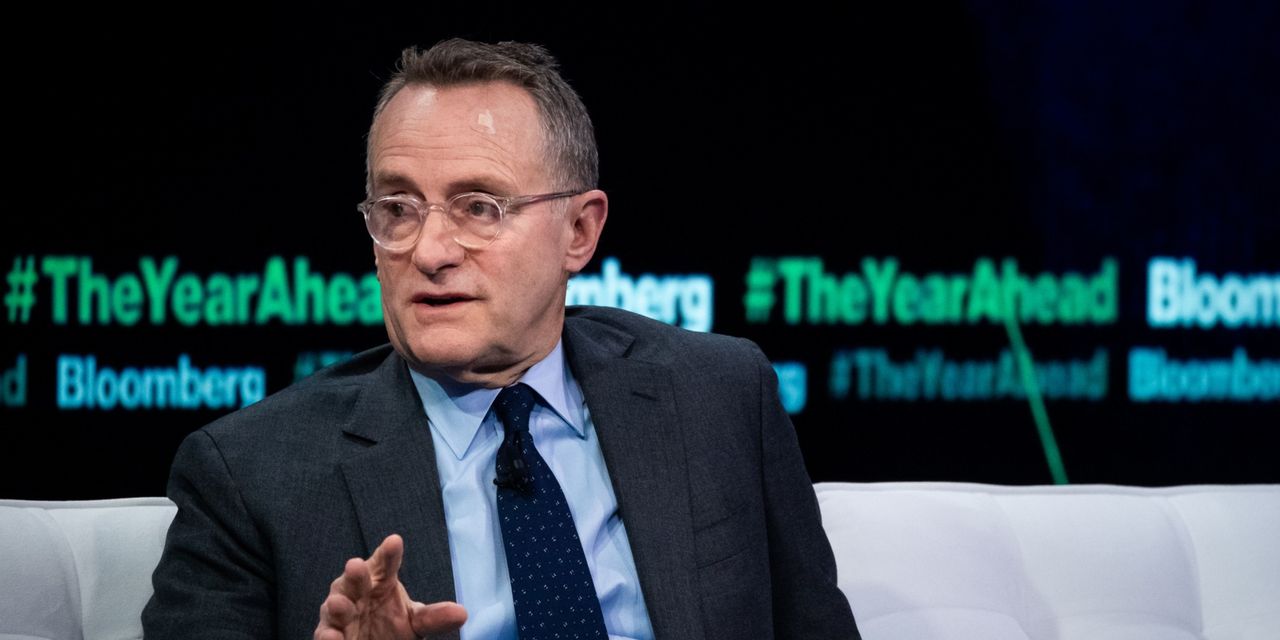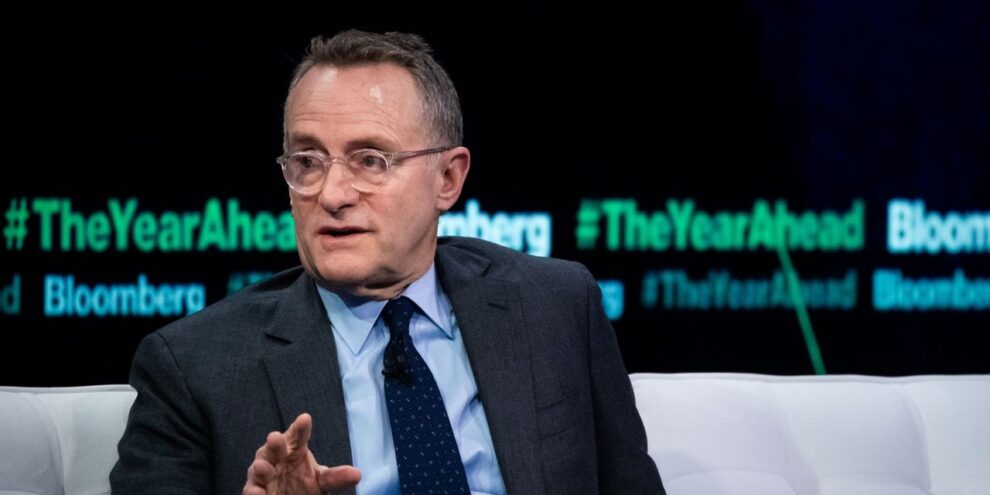
The failures of Silicon Valley Bank and Signature Bank last month aren’t likely to cause widespread contagion in the banking sector, but they may lead to further credit tightening, according to veteran investor Howard Marks.
Marks, co-chairman at Oaktree Capital Management, one of the world’s largest investors in distressed debt, said some financial institutions are likely to reduce the amount of credit they make available after two banks collapsed, adding pressure to some borrowers.
“The failures of SVB and the other banks likely aren’t enough to bring on a credit crisis, but they could contribute to one,” Marks wrote in a memo Monday.
In particular, startups might have a more difficult time to raise money in the coming months, according to Marks.
Meanwhile, regional and community banks may face increased scrutiny and deposit outflows, as their customers move their funds to money-market funds and larger banks, Marks said.
What’s more, as such banks are main financiers of the commercial real-estate market, property owners and developers of office buildings, brick-and-mortar retail stores and even multifamily properties might come under pressure, Marks noted.
Still, as interest rates have gone up, the current environment may open up opportunities for lenders and bargain hunters, Marks said.
Read:End of 40-year era of falling interest rates is crucial ‘sea change’ for investors: Howard Marks
“When investors think things are flawless, optimism rides high and good buys can be hard to find,” Marks wrote.
“But when psychology swings in the direction of hopelessness, it becomes reasonable to believe that bargain hunters and providers of capital will be holding the better cards and will have opportunities for better returns. We consider the meltdown of SVB an early step in that direction,” according to Marks.
Commercial real estate risks
Marks highlighted that one of biggest worries banks are facing is the possibility of problems stemming from loans against commercial real estate, especially office buildings.
Higher interest rates, a potential recession, tighter of credit conditions and falling demand of office buildings with Covid overhauling the way of how people work, all bode ill for the commercial real-estate sector, Marks said.
Meanwhile, U.S. banks are estimated to hold about 40% of the $4.5 trillion commercial real estate mortgages outstanding, or about $1.8 trillion in face value, while total U.S. bank assets stand at more than $23 trillion.
As banks are highly levered, with collective equity capital of $2.2 trillion, or roughly 9% of their total assets, the estimated amount the average bank has in commercial real-estate loans is equal to approximately 100% of its capital, Marks noted. As a result, losses on commercial real estate mortgages could wipe out an equivalent percentage of the average bank’s capital, leaving it undercapitalized, according to Marks.
However, it doesn’t mean banks will necessarily suffer losses when defaults on commercial real estate mortgages occur, Marks said. It also depends on loan-to-value, an assessment lenders use to determine risks they are exposed to, and the negotiations between lenders and landlords, Marks noted.
“No one knows whether banks will suffer losses on their commercial real-estate loans, or what the magnitude will be,” Marks wrote. “But we’re very likely to see mortgage defaults in the headlines, and at a minimum, this may spook lenders, throw sand into the gears of the financing and refinancing processes, and further contribute to a sense of heightened risk.”







